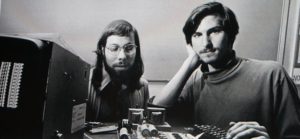How Should CEOs Use Their Time?
What a CEO’s schedule tells you about their company.
In terms of work, you have only two choices. Everything you do can be categorized as one or the other: people or projects. To accomplish a goal, you must work either with people or a project.
Put another way, all work is either relational or creative. Either you work with people – meet, talk, present, communicate, listen, watch, etc. – or you work on projects – design, code, write, build, create, produce, etc.
For most jobs, it’s either all people or all projects. In his essay Maker’s Schedule, Manager’s Schedule, Paul Graham, computer scientist turned venture capitalist, writes that powerful people (managers) operate in one hour time blocks while programmers and writers (makers) prefer to operate in half-day time blocks. But the question of whether or not you should be a project or a people person becomes blurred when you’re a startup founder who has to have his or her hands in everything.
CEO: maker or manager?
While a CEO is the most powerful person in the organization, he or she is, at the core, a manager – someone responsible for casting the strategic vision of the company and leading people towards it.
It’s not worth the time of the CEO. A contributor to Forbes told the story of how an ousting of the CEO of a publicly traded company affected its profits by $1.25 billion. A CEO’s time has extraordinary value. It makes no sense financially for a CEO do a task when someone else can do it equally well.
CEO is not a maker, it seems.
An insightful Quora commenter quoted this exchange between Steve Jobs (manager) and Steve Wozniak (maker) in Steve Jobs’ recent movie:
Steve Wozniak: You can’t write code… you’re not an engineer… you’re not a designer… you can’t put a hammer to a nail. I built the circuit board. The graphical interface was stolen from Xerox Parc. Jef Raskin was the leader of the Mac team before you threw him off his own project! Someone else designed the box! So how come ten times in a day, I read Steve Jobs is a genius? What do you do?
Steve Jobs: I play the orchestra, and you’re a good musician. You sit right there and you’re the best in your row.
A CEO’s time is his most valuable asset. He needs it to knit together a company and move it toward a greater future state. The enormity of this task leads boards and shareholders to justify the eight-figure pay package for some CEOs of publicly traded companies. In 2015, Walmart CEO Doug McMillon’s total compensation was $19.4 million.
How it’s different for startup CEOs
When a company first starts out, it’s not making enough money to pay the founder an exorbitant sum. Does that mean the founder’s time is not as valuable?
A startup is not a publicly traded company. As bad as it sounds, whether it lives or dies, it won’t affect many people’s lives (compared to a public company).
The implications of this create tremendous pressure for the lone startup CEO, especially in the early stages: the brave individual must be both a people and a project person to succeed. A maker and a manager.
This necessary balance is what causes startup CEOs to work grueling work weeks, ingest egregious amounts of caffeine and alcohol, and lose hours of sleep.
In an influential Backchannel essay on Medium, Do Startups Have a Drinking Problem?, the writer describes what it’s like to lead a startup:
Startups are hard. Really f***ing hard. 95% of startups will fail. We work long hours in an attempt to innovate faster, ship products sooner, outrun competitors and preserve limited venture funding. We juggle multiple roles and responsibilities in an effort to keep teams small and nimble. When things go wrong, we pull sleepless nights, perform Herculean support feats and bend over backwards to retain early adopters. We forgo vacations, skip workouts, answer emails on our phones during family time and are expertly skilled at eating lunch while getting s*** done. It’s only natural that we would want to find convenient ways to blow off steam, de-stress, or ease fears.
Why startup founders put themselves through this is mystifying. Perhaps, the payoff of global fame and starry fortune offsets the risk of failure, debt, and emotional turbidity. Maybe it’s the primal drive, the raw ambition to make a difference, to matter, that pushes them beyond their limits.
Try this experiment
The next time you talk to a startup CEO, ask them the question:
“Are you more of a manager or a maker?”
The more mature the startup, the more of a manager he or she will be. The more nascent the startup, the more of a maker he or she will be.
Are you a startup CEO? How do you handle your time without overworking yourself?
To help answer this question, I’m writing a practical guide as a follow up to this article. Follow me on social media to see it when it comes out.

